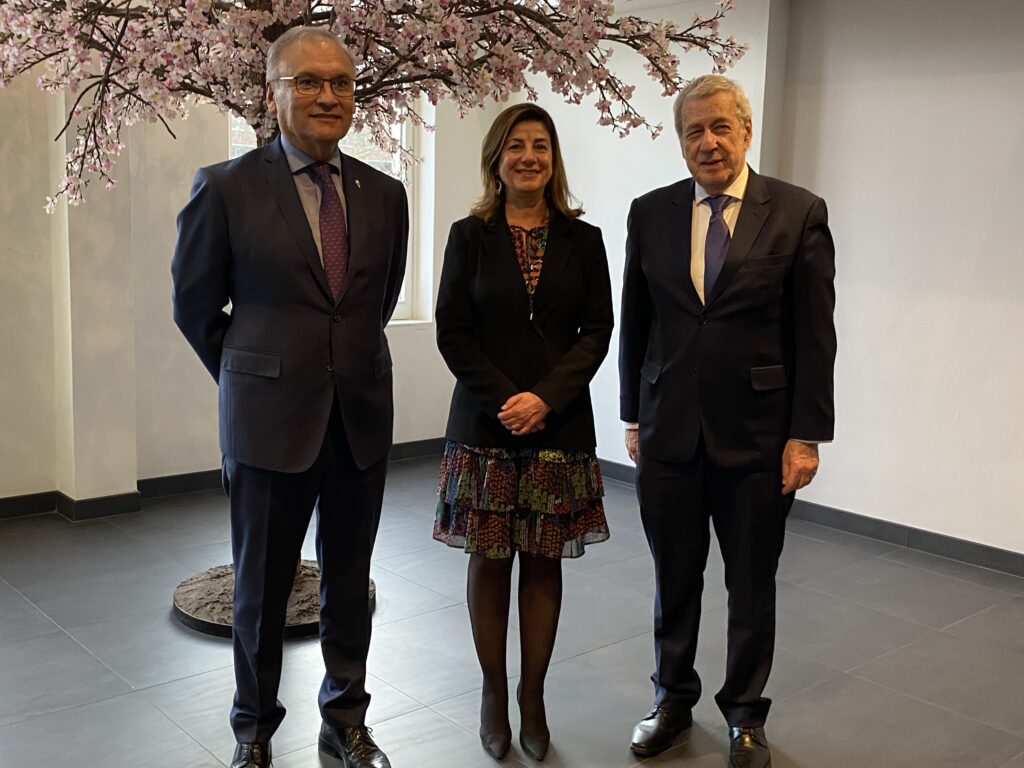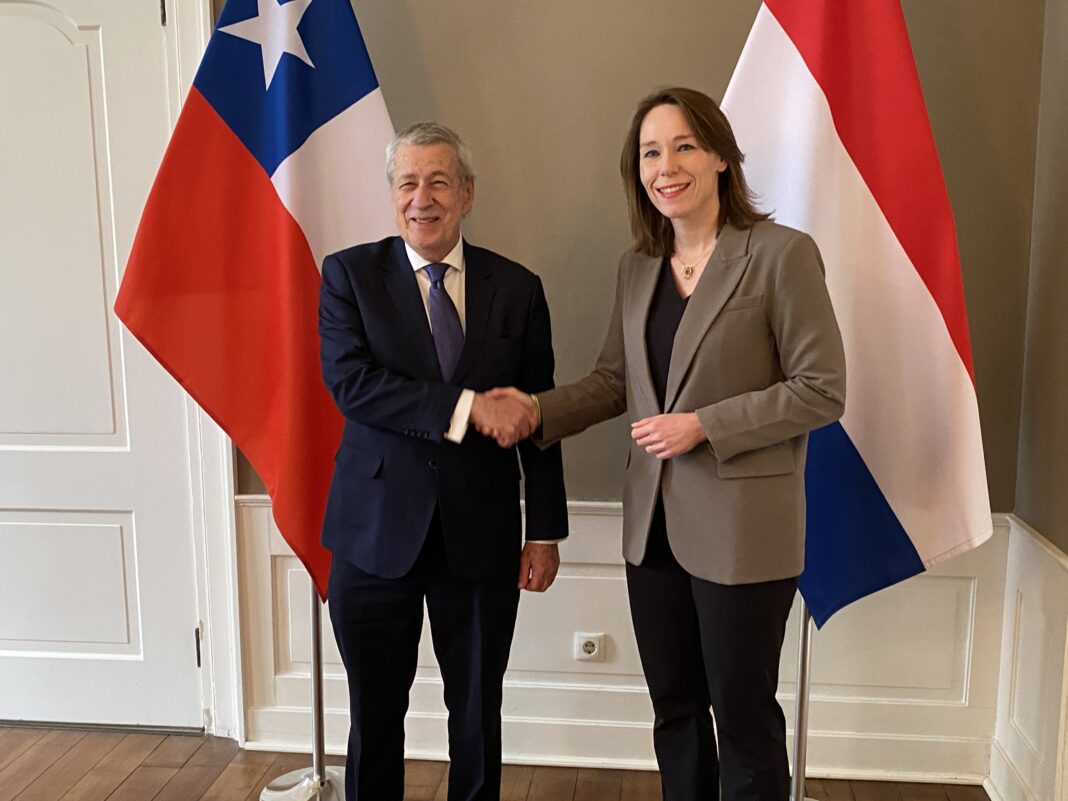On December 14th, the Minister of Foreign Affairs of Chile, H.E. Mr. Alberto van Klaveren, undertook an official visit to the Netherlands, during which he engaged in a comprehensive agenda of activities. This visit took place within the context of his trip to Europe to participate in the signing of the Advanced Framework Agreement (AFA) between Chile and the European Union, as well as the commemoration of the 75th anniversary of the Universal Declaration of Human Rights. In The Hague, the Minister met with his counterpart Hanke Bruins-Slot and various authorities from international judicial organizations based in the city.
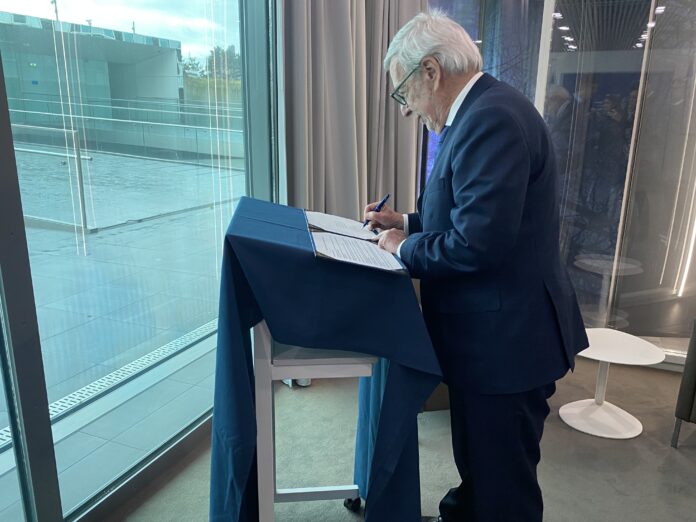
The meeting with Minister Bruins-Slot highlighted the strength of the bilateral relationship and the shared principles and values of both countries, such as the strengthening of democracy, the promotion and protection of human rights, freedom of expression, and free trade. It also emphasized the alignment of interests in bilateral, regional, and multilateral issues.
Among the topics discussed, the authorities underscored the signing of the AFA, which modernized the existing Association Agreement with the European Union since 2003. This agreement will facilitate a deeper joint dialogue, an update of political and cooperation matters, and addressing new challenges in international trade.
The Dutch minister expressed gratitude for Chile’s gesture of awarding the Recognition Coin for International Solidarity to 11 Dutch individuals who stood out for their support to Chilean refugees after the Military Coup, and for their commitment to human rights and the restoration of democracy.
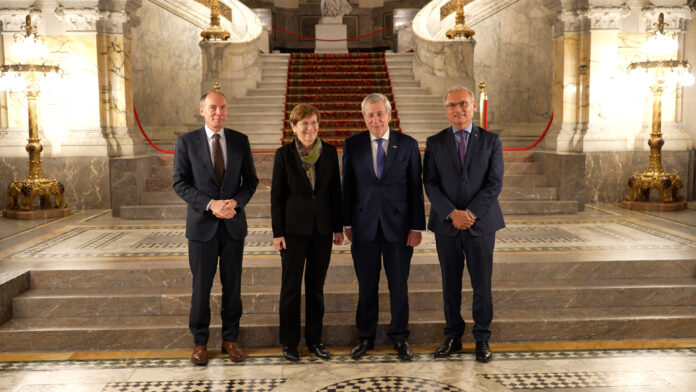
Another highlighted topic during the meeting was the transition to clean energy. Both authorities agreed on the importance of developing this area and the opportunity for cooperation. They specifically mentioned the Memorandum of Understanding with the Port of Rotterdam to establish a collaboration mechanism for green hydrogen.
Regarding the situation in the Middle East, both sides concurred, in line with Chile’s historical position, on the Two-State solution for Palestine and Israel, living in peace with secure and internationally recognized borders, in accordance with United Nations resolutions. Chile, along with Mexico, submitted a referral to the International Criminal Court (ICC) regarding the situation in Palestine, aiming to strengthen the investigation of alleged war crimes and crimes against humanity in Gaza, the West Bank, East Jerusalem, and Israel, as outlined in the Rome Statute. They also discussed the war in Ukraine, with the Foreign Minister reiterating Chile’s support for Ukraine against Russia’s aggression, as previously stated by President Gabriel Boric.
The Agenda in The Hague
During his visit to the Dutch government’s headquarters, Minister Alberto van Klaveren met with authorities from major judicial organizations based in The Hague to understand their main challenges and renew Chile’s support for their work.
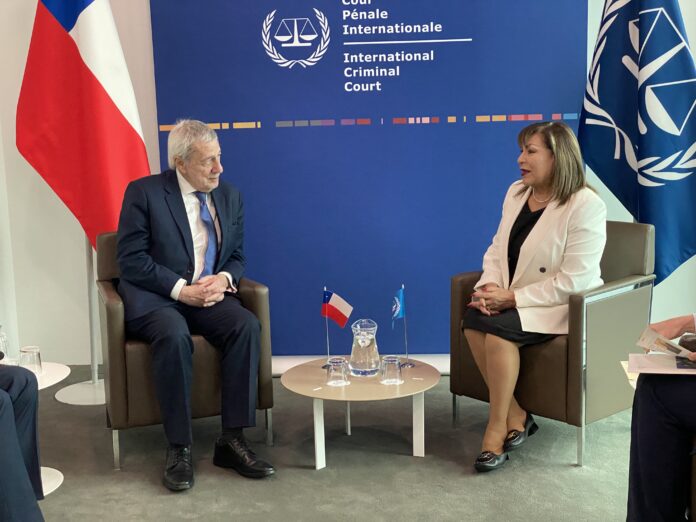
In his meeting with the Vice President of the International Criminal Court (ICC), Luz del Carmen Ibáñez, the minister emphasized Chile’s commitment to the role of the ICC and the compliance with international human rights and humanitarian law. Chile has participated in three referrals to this court: the Situation in Venezuela 1, Ukraine, and the situation in Palestine.
He also held meetings with the Secretary-General of the Permanent Court of Arbitration, Marcin Czepelak, and the President of the International Court of Justice, Joan Donoghue.
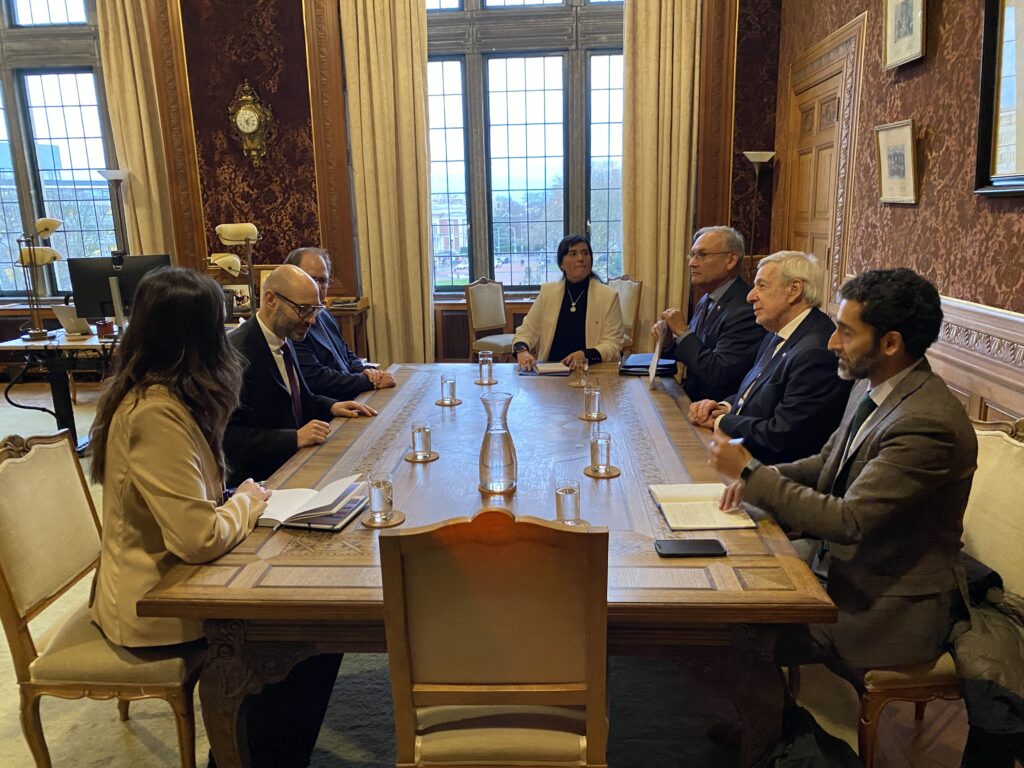
Additionally, he visited the International Commission on Missing Persons, where he learned about the institution’s work since 1996, collaborating with governments and entities worldwide to address the issue of missing persons due to armed conflicts, human rights violations, disasters, organized crime, and irregular migration.
In June 2008, ICMP and the Ministry of Justice of Chile signed an agreement to provide technical assistance in identifying victims of forced disappearance since the 1970s. Since then, ICMP has collaborated on DNA tests for over 2,400 reference samples and nearly 200 post-mortem samples of missing persons, providing assistance in DNA matching and consultation.
